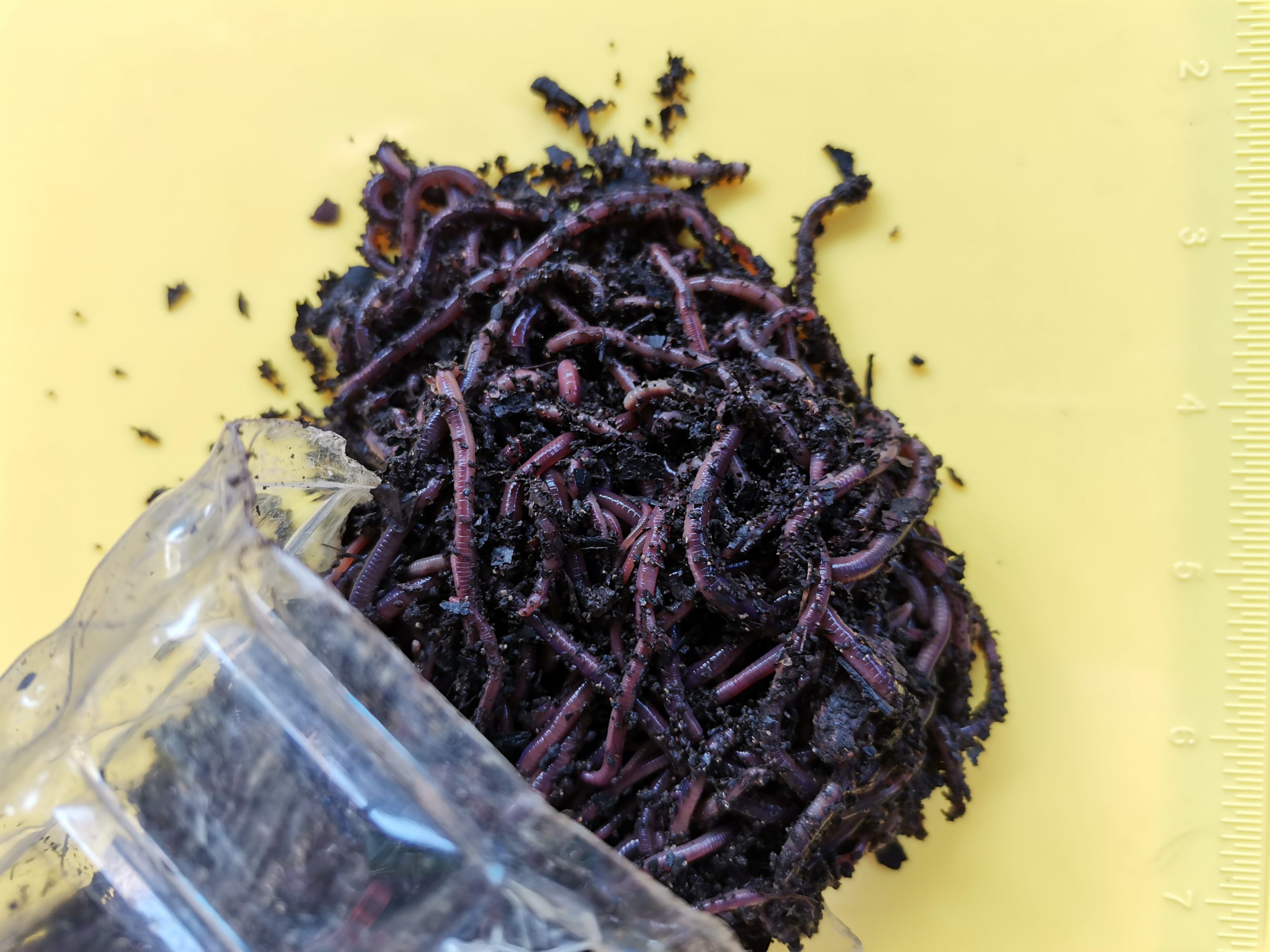
SU project turns organic waste into fertilizer
A project of Silliman University (SU), led by College of Agriculture instructor Arsenio D. Bulfa Jr., converts organic waste from the campus into profitable products like organic fertilizer.
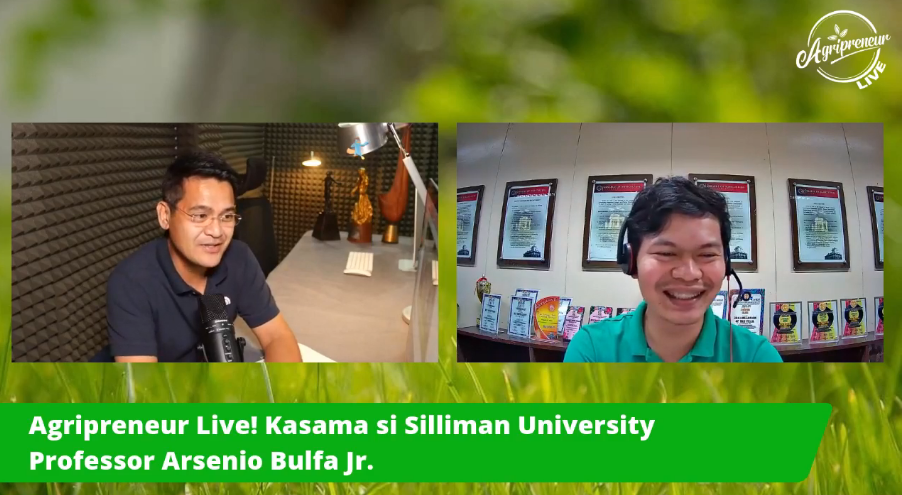
College of Agriculture instructor Arsenio D. Bulfa Jr. talks about organic fertilizer production project of SU on “AgriPreneur,” a weekly show on the GMA Network, last November 3, 2020.
Bulfa talked about the organic fertilizer production project of SU on “AgriPreneur,” a weekly show on the GMA Network, last November 2020.
On the show, Bulfa talked about the University’s process of converting organic waste to fertilizer and other agricultural products, all done in the SU Scheide Farm where the College is located.
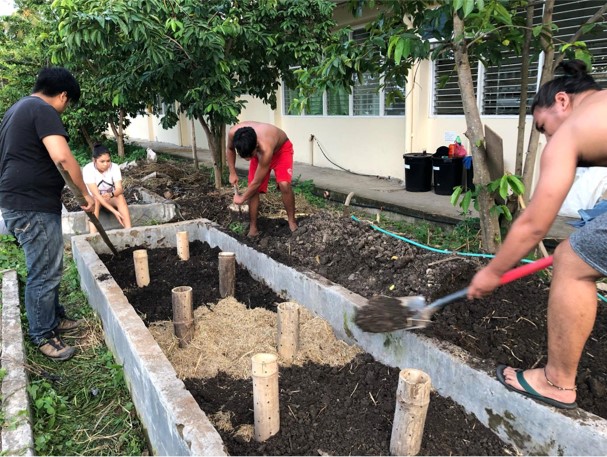
Students at the College of Agriculture work on vermicomposting.
“All the organic wastes coming from the University is now deposited in one spot in (the College of Agriculture),” said Bulfa.
Organic wastes collected from the campus such as leaves, twigs, food waste, and manure from animals in the farm are converted into the following products enumerated by Bulfa: vermicast, organic fertilizer, organic soil amendments, and potting mixes.
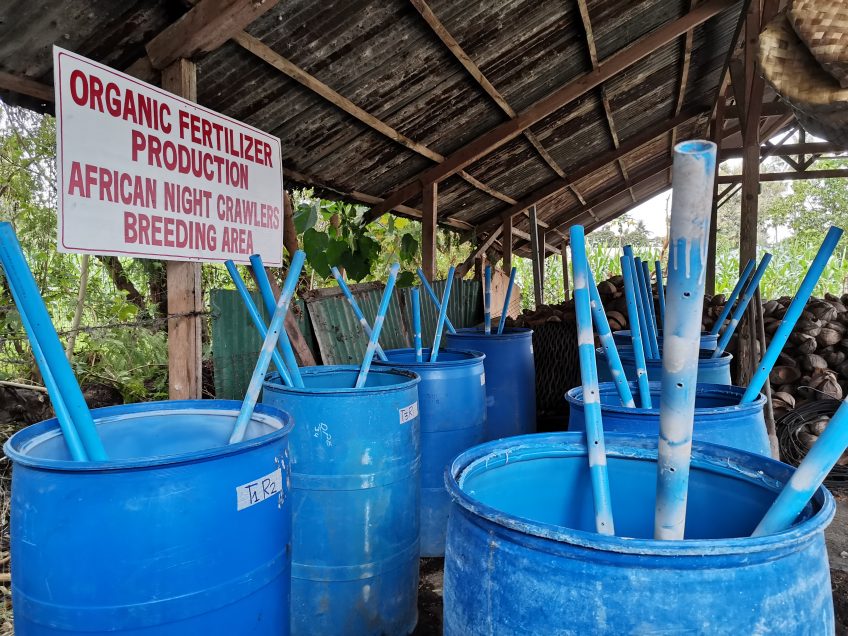
Earthworm production area at the SU Farm.
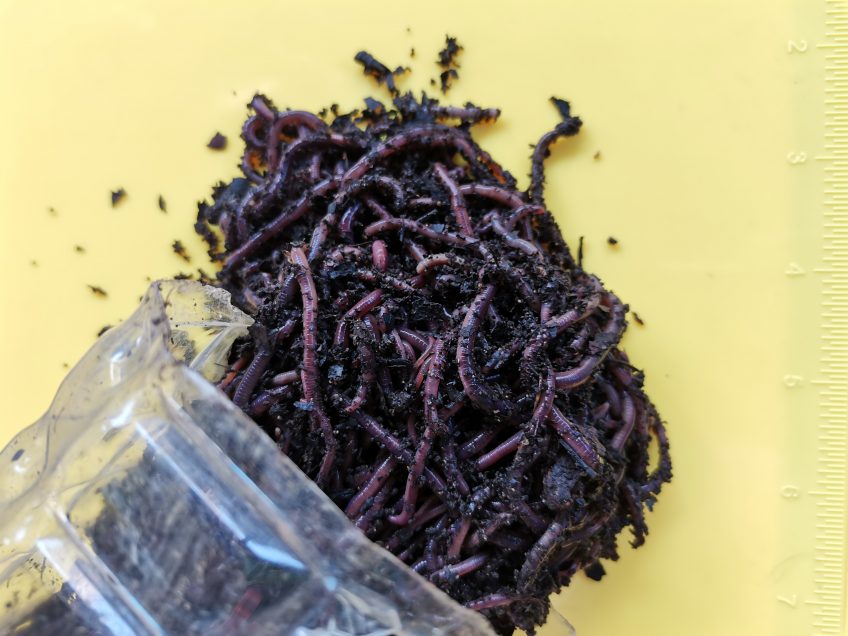
Recovered earthworms after vermicompost harvesting.
Bulfa said the College of Agriculture faculty, staff, and students are working together on the project, with the goal to help smallholder farmers to plant healthy plants that are not dependent on synthetic fertilizers and make healthy produce.
Making organic fertilizer
Bulfa said leaves are first shredded then mixed with manure to remove moisture and odor.
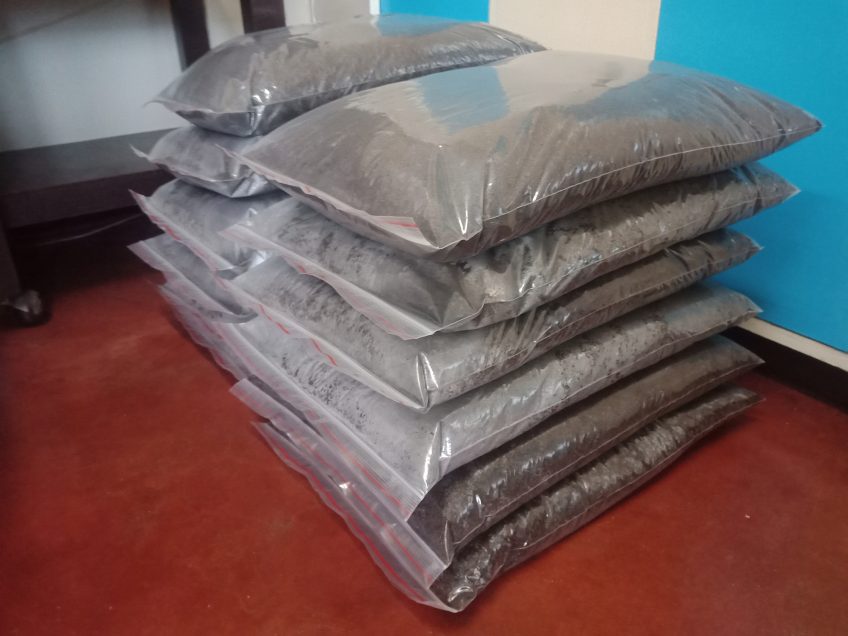
The organic fertilizer production project of SU, led by College of Agriculture instructor Arsenio D. Bulfa Jr., converts organic waste from the campus into organic products like vermicast, organic fertilizer, organic soil amendments, and potting mixes.
Concoctions made by students in Bulfa’s class are also added to the compost pile to remove odor and add more microorganisms, which will speed up the decomposition process. The concoctions include fermented fruit juice, fermented plant juice, bokashi, and lactic acid bacteria serum.
Bulfa said controlling or removing the odor of the compost pile is an important process in making organic fertilizer, especially when making organic fertilizer near residential areas.
The leaves and manure mixture is then mixed with vermicast, carbonized rice hull, and other products to create potting mixes for specific crops.
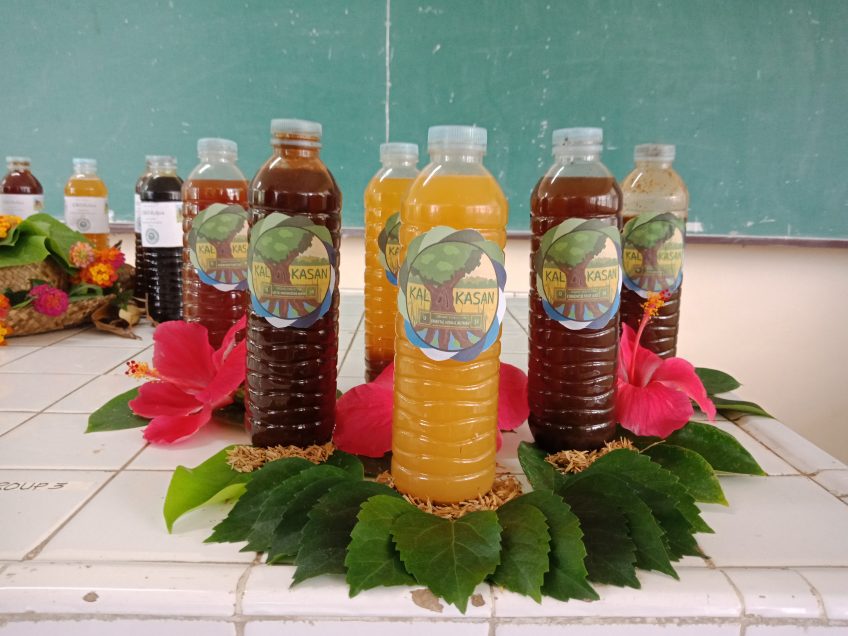
Aside from organic fertilizer, the College also produces organic soil amendments like organic concoctions that improve soil quality.
Bulfa emphasized that the compost mix, as an organic material, must be “totally decomposed” and aged first before it can be used as organic fertilizer, or else it might harm plants.
Before using the created organic fertilizer and other organic soil amendments like vermicast, Bulfa said his team waits three to six months to age it.
Food waste
As for food waste, Bulfa said it is processed through bokashi composting, which turns food waste into soil amendments.
Because of the oils in food waste, Bulfa said it is not mixed with organic wastes as it can slow down decomposition.
Farming and gardening for all
Bulfa said among the products produced by the project, potting mixes were the most popular because of the “plantito/plantita” trend of owning potted plants and houseplants that rose due to the ongoing pandemic.
Bulfa saw this as an opportunity to educate people about taking care of plants and opened a Facebook page for SU Farm to reach out to a wider audience online.
“Since these people are new to gardening, we opened a Facebook (page) so that they can consult us freely (about their plants), how much fertilizer to apply…We are able to help them using this platform and as a college, (we are glad to help inform people about sustainable farming),” said Bulfa.
Bulfa said the project is also an avenue for research in the College as they seek to identify the best technologies to share with the community.
Bulfa, who teaches soil science and is the research coordinator of the College, initiated the project after conducting a laboratory activity in his organic agriculture class. He realized that the activity would be a beneficial project for SU.
The University administration, said Bulfa, has supported and funded the project, which is in line with SU’s environmental advocacy.
“We (at Silliman University) want to become forerunners of the prevention of environmental pollution, conservation, and enhancement of our natural resources and sustainability, (that’s why we need to) educate the community on how to do organic farming because it’s environment-friendly (and) sustainable,” said Bulfa.
In the show, Bulfa also talked about the importance of shredding materials before adding them to the substrate, the importance of aeration in compost bins or pits, and vermicomposting.
The show, hosted by journalist Jiggy Manicad, features stories about agriculture, agribusiness, and agricultural technology.


